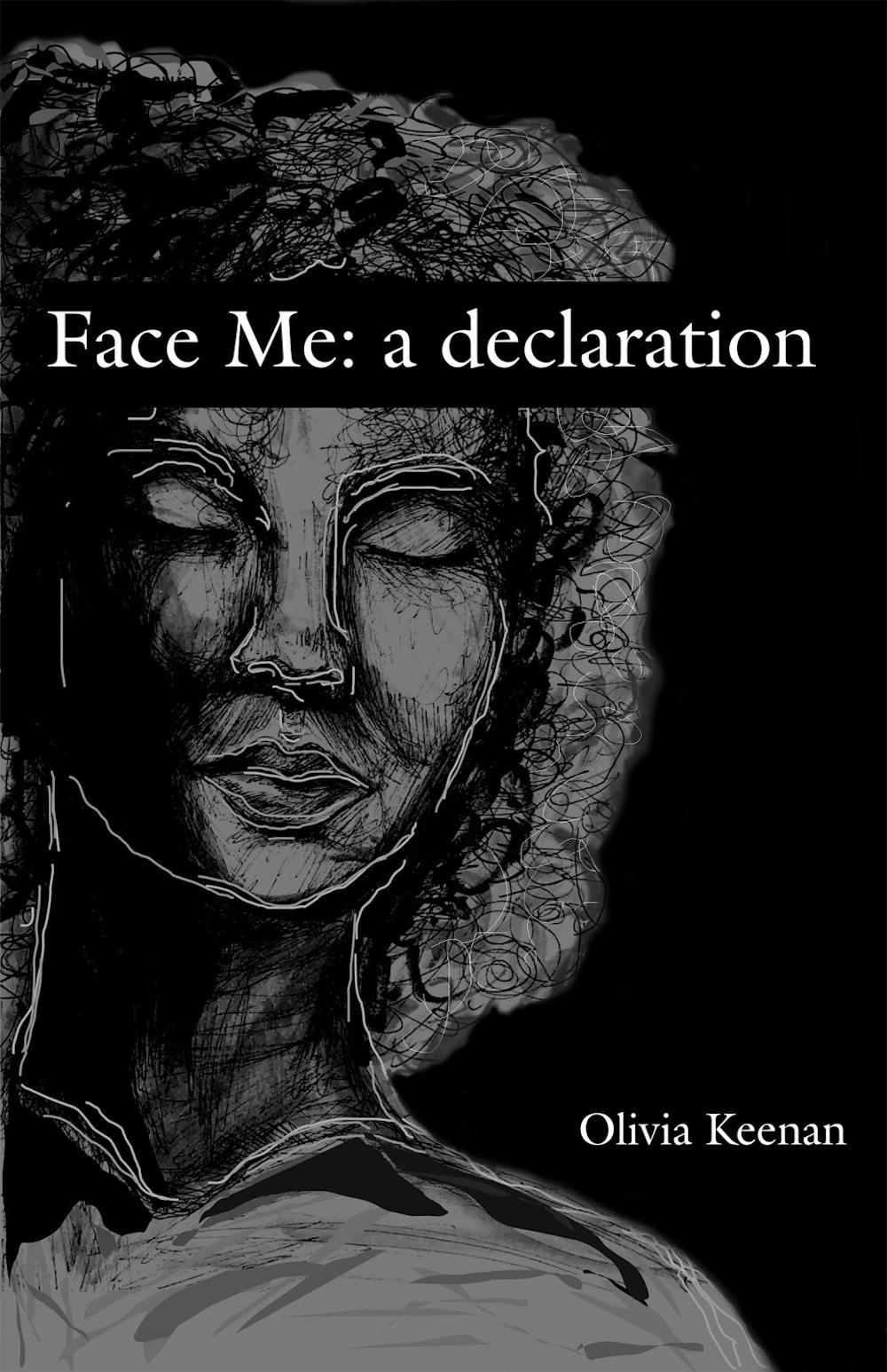"Face Me: a declaration" examines the complexities and intersectionalities of identity, religion and history through a lens that begins in uncertainty and submission and transforms into a celebration of self. Second-year College student Olivia Keenan shares her identity and story through this book of poems to reclaim herself in the context of the historic white patriarchy.
Keenan developed a love for writing poetry in middle school and started performing slam poetry in high school. She continued to indulge in literature and poetry in her first year when she joined Flux Poetry and Spoken Word, a student group on Grounds that promotes self-expression and creativity through the exploration of written and performed poetry. Keenan explains Flux as an organization where her voice has been uplifted in the best way. Not only has it provided her a safe space to speak on issues like these, but it has also reinforced her desire to write about her own identity.
Keenan's most recent project began in summer 2020 when her father’s cousin Carrie Severson reached out to her about pitching a project for Unapologetic Voice House, an independent publishing company. Although Keenan did not have a particular project in mind, she expressed that she would love to write about her identity through race. After showing her some poems she already had written, the official process began around June and July. She did most writing from her home in Milwaukee and finished writing at the University when she came back in August. The book was finalized in December, and by February it was available for presale and officially released on April 6.
Keenan described that her inspiration for "Face Me" came from the controversial events occuring during the summer of 2020.
“It was definitely just the events of this summer that catalyzed it … and just the fact that also, with COVID, [I had] so much time on my hands to write and then so much time to be thinking about race,” Keenan said.
She also explained how her relationship with her two younger sisters had a major impact on the book. She dedicated the book to her siblings, and many of the pieces in the book are directed towards them, encouraging them to embrace and celebrate their identities while also praying for a better future for them.
The book also commemorates personal family traditions, such as in the poem called “Princess Mobutu,” in which Keenan addresses her mother and sisters by remembering a character their mother created to inspire her children.
Overall, the book works towards this theme of celebration and reclamation, but only after addressing the submission and uncertainty a young, mixed-race Black woman faces in today’s American society. Keenan focuses on a lot of intersectional issues, such as race, femininity, history and religion to “cater the journey” she went through.
She also wanted to see this journey reflected in the artwork for the book. Keenan collaborated with Caroline Weis, her close friend and second-year College student, on the photography to ensure that the photos emulated the poems they paired with. One photo matched with the poem “Wash” depicts a pair of feet, symbolic of the religious implications of sin and the idea of washing one’s feet as an act of service. Similarly, Weis designed the cover with Keenan to ensure that it reflected the real confrontation that comes with the command of "Face Me."
Finally, Keenan detailed the main ideas she hopes her readers will take away from this project, one of which is centered around the University and its history of idolizing racist men. She explained how the title of her book seeks to reclaim some of the foundational elements of both the University and the United States in general.
“I named it … 'Face Me: a declaration' because of the fact that … the founder of the school wrote the Declaration of Independence and didn’t include people that look like me,” Keenan said. “So, I reclaim these notions of declaration and these idolized documents that are very imperfect and written by very imperfect men.”
Similarly, Keenan emphasizes the marginalization and treatment that comes with being a mixed-race Black woman in her book. After looking at this topic in the context of American history, Keenan addresses the shame most women feel about their identities and their bodies. This is especially observed in her piece “Lucky You” with the line, “you are not the one who begs for forgiveness at the end of the night.”
“I want people to read that and realize that they shouldn’t feel shameful of the decisions they make and what their bodies are like or what it looks like or what they chose to do with it,” Keenan said.
"Face Me: a declaration" not only observes and critiques intersectional issues, but tells her story in a way that is compelling, unique and powerful. The language is intimate and truly reflects today’s world. But the only way to understand the full range of meaning presented in the book is to read it yourself, as it is truly an experience. “Face me,” is not simply a question — it is a command.
"Face Me: a declaration" can be purchased on Amazon for Kindle and in paperback.







